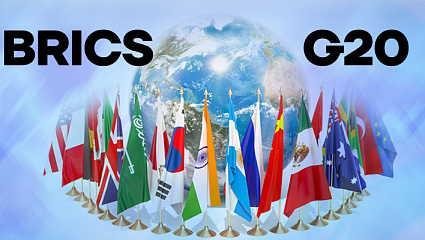Chinese scientists gоt offspring from a pair of mother
Chinese scientists are continuing researches on genomic editing, this time they managed to get healthy offspring of mice, both of which are females.
According to China Daily, previously, scientists from the Institute of Zoology of the Chinese Academy of Sciences (CAS) tried to get offspring from a pair of male mice, but the experiment failed. Newborn mice lived for only a few days. It is noted that in nature, reproduction of offspring from one parent occurs often, for example, parthenogenesis or self-fertilization.
However, as for mammals, it is impossible to change the mechanism laid by nature even with the help of artificial fertilization. The fact is that mammals have a so-called genomic imprinting, due to which the embryo receives both fatherly and maternal alleles.
If the embryo does not receive genetic material from any of the parents at all, this may be accompanied by anomalies in its development, even death.
In the experiment, a team of Chinese scientists, led by Zhou Qi, a professor at the Institute of Zoology, used haploid embryonic stem cells (ESCs), which contain half of the normal number of chromosomes and the DNA of just one of the parents.
After this, the scientists removed three areas of the imprinting of the haploid ESC genome containing the DNA of the female parent, and injected them into the egg of another female mouse.
As a result, 29 out of 210 mice embryos developed. According to scientists, they were normal, healthy, and even had their progeny. The results of the scientific experiment were published last Thursday in the British scientific journal called Cell Stem Cell.
According to China Daily, previously, scientists from the Institute of Zoology of the Chinese Academy of Sciences (CAS) tried to get offspring from a pair of male mice, but the experiment failed. Newborn mice lived for only a few days. It is noted that in nature, reproduction of offspring from one parent occurs often, for example, parthenogenesis or self-fertilization.
However, as for mammals, it is impossible to change the mechanism laid by nature even with the help of artificial fertilization. The fact is that mammals have a so-called genomic imprinting, due to which the embryo receives both fatherly and maternal alleles.
If the embryo does not receive genetic material from any of the parents at all, this may be accompanied by anomalies in its development, even death.
In the experiment, a team of Chinese scientists, led by Zhou Qi, a professor at the Institute of Zoology, used haploid embryonic stem cells (ESCs), which contain half of the normal number of chromosomes and the DNA of just one of the parents.
After this, the scientists removed three areas of the imprinting of the haploid ESC genome containing the DNA of the female parent, and injected them into the egg of another female mouse.
As a result, 29 out of 210 mice embryos developed. According to scientists, they were normal, healthy, and even had their progeny. The results of the scientific experiment were published last Thursday in the British scientific journal called Cell Stem Cell.







 DIGITAL WORLD
DIGITAL WORLD






































